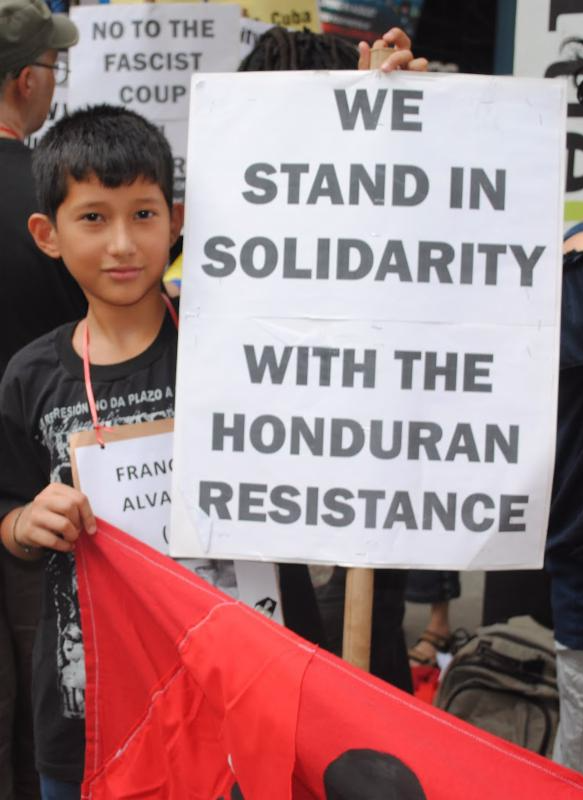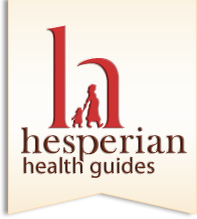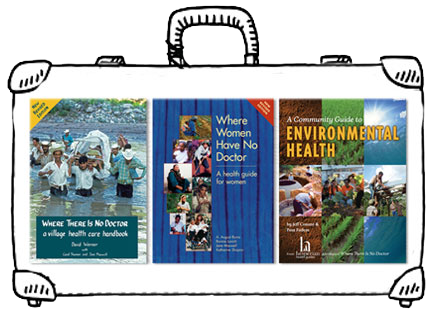The influence of policies created by the United States and Canada is strongly felt in Honduras, magnifying poverty, inequality, insecurity, and violence in the country. In response to this interference, organizations from the US and Canada have formed the Honduras Solidarity Network (HSN) to support Honduran activists and community leaders in their commitment to further social justice.
 One way they do this is by partnering with local organizations in Honduras. Karen Spring, the HSN Program Coordinator, organizes educational delegations to Honduras to accompany and assist communities in this struggle. On a delegation earlier this year, participants traveled with copies of Donde no hay doctor and Donde no hay doctor para mujeres to bring to grassroots organizations throughout the country. The delegates’ impact was even greater because they were able to leave these important health resources behind after their trip.
One way they do this is by partnering with local organizations in Honduras. Karen Spring, the HSN Program Coordinator, organizes educational delegations to Honduras to accompany and assist communities in this struggle. On a delegation earlier this year, participants traveled with copies of Donde no hay doctor and Donde no hay doctor para mujeres to bring to grassroots organizations throughout the country. The delegates’ impact was even greater because they were able to leave these important health resources behind after their trip.
One group, the Siria Valle Environmental Committee, works with people sickened by open pit gold mining, pervasive in the region and backed by US and Canadian interests. Committee member Olga Velasquez is a self-taught promotora who talks to her neighbors about health concerns, accompanies them on the hour-long bus ride to the hospital, and makes sure they are following through on treatment plans. When people come to see Olga, she consults Hesperian books, and always takes them with her on health visits.
Karen also delivered books to COPINH — the Civic Council of Indigenous and Popular Organizations. COPINH was founded by the late Berta Cáceres, winner of the Goldman Environmental Prize, who was murdered for protecting her land from corporate mining interests. Members of the organization use Donde no hay doctor and Donde no hay doctor para mujeres in promotora trainings with Lenca indigenous women, and distribute photocopies to the participants.
OFRANEH, a Black Fraternal Organization, also received copies of the books. The Garifuna (afro-Honduran) people they work with live over two hours from the nearest hospital, and struggle with high rates of malaria, dengue fever, diabetes and hypertension. In this remote part of the country, Donde no hay doctor and Donde no hay doctor para mujeres are truly lifesaving resources.
The next time you travel, bring Hesperian books with you to have a lasting impact on the communities you visit. Learn more about ways to share these resources on your travels with our free travel handout, available along with our new Traveler’s Set, in English and Spanish.






